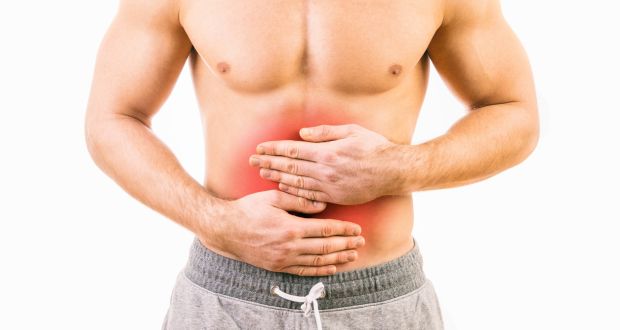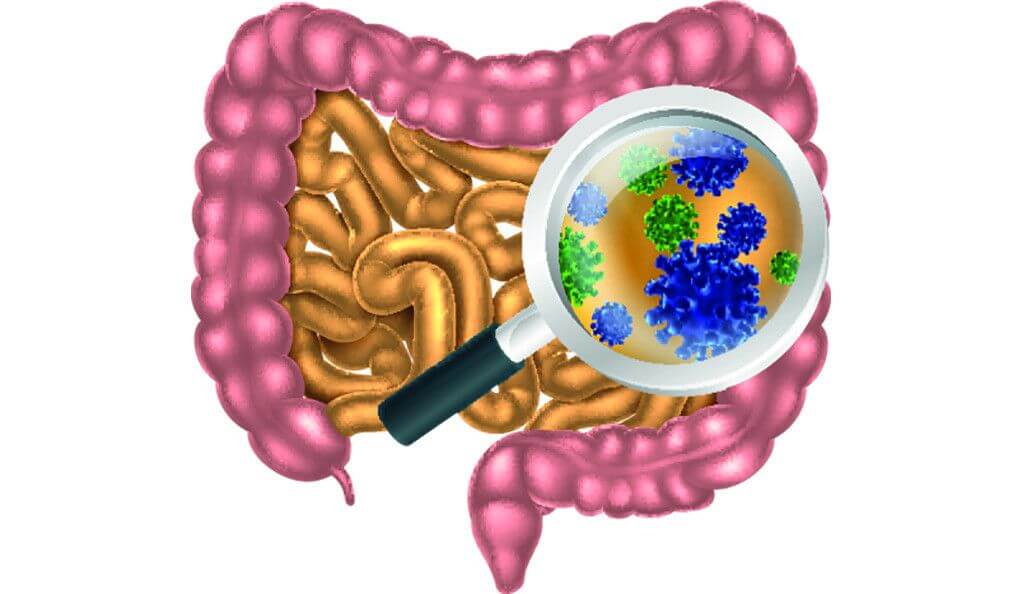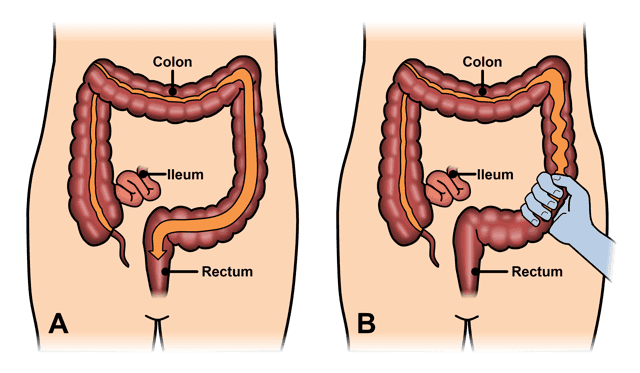What is IBS (Irritable Bowel Syndrome)?
IBS is one of the most common bowel disorders witnessed by gastroenterologists in the United States. Symptoms include cramping, diarrhea, constipation, gas, and bloating. These symptoms mean thatIBS can have a significant effect on a person's quality of life. If you are experiencing an uncomfortable feeling for hours after a meal or waking up with a balloon in your stomach feeling ready to explode, it may be because of irritable bowel syndrome.

What are the Symptoms of Irritable Bowel Syndrome?
A common challenge for individuals with IBS is experiencing alternating episodes of diarrhea constipation. Irritable Bowel Syndrome (IBS) can cause a lot of different symptoms that don't always look the same among people. These symptoms include:
- Bloating
- Gas
- Pain and cramping
- Constipation
- Diarrhea
- Alternating constipation and diarrhea
- Bowel movements that feel uncomfortably urgent, difficult to pass, or incomplete
- Food intolerance
Understanding the symptoms of IBS is the first step toward diagnosing IBS and treatment, and ultimately, improving your quality of life.
What Causes IBS?
Inflammatory bowel disease is a different condition that should not be confused with irritable bowel syndrome. Despite being a common condition, scientists are still puzzled about the exact cause of IBS. However, there has been extensive research to determine what triggers its symptoms.
Some factors that could result in the onset of IBS include changes in gut bacteria and prior gastrointestinal infections. It's worth noting that other factors such as stress levels, dietary habits, and genetic makeup may also have a significant role in developing IBS.
It is crucial for individuals suffering from IBS to be aware of these possible causes because it can help them manage their symptoms better with the help of their healthcare provider. In this section, we will delve deeper into the latest findings regarding what could be causing this perplexing tummy problem so you can gain an extensive understanding of this condition which plagues many people around the world.

What Situations Trigger IBS?
IBS can be triggered by many situations;
- Gender: Women are twice as likely to have IBS because of hormonal changes. Many women find that signs and symptoms are worse during or around their menstrual periods.
- Food sensitivities: Some foods like dairy, gluten, fruits, and grains can trigger IBS.
- Medications: Drugs like antibiotics and those made with sorbitol may worsen IBS.
- Stress and Anxiety: While stress and anxiety may aggravate symptoms, they don't cause them.
What are the Worst Foods for IBS?
These foods are potential triggers of IBS. Triggers may be different for each person.
- Legumes like chickpeas, lentils, and kidney beans
- Fresh fruits - such as apples, pears, peaches, cherries, mangoes, pears, and watermelon. Having three or more portions of fruit per day can trigger your IBS.
- Grains - like wheat and rye
- Certain fiber resources - such as inulin (found in asparagus, onion, and garlic)
- Certain Vegetables causing bloat and gas - like cabbage, broccoli, and cauliflower
- Gluten - Research shows that some people with IBS report improvement in diarrhea symptoms if they stop eating gluten (wheat, barley, and rye) even if they don't have celiac disease.
- Dairy - foods containing lactose such as cow’s milk, cheese, yogurt, and ice-cream
- Sorbitol - an artificial sweetener found in some sugar-free sweets and drinks
- Tea and coffee - also trigger IBS symptoms
- Alcohol and carbonated drinks
Keeping a food journal is a great way to learn which foods and drinks trigger your symptoms.
Who Gets Irritable Bowel Syndrome?
IBS is a common stomach problem that affects people of all ages. It's usually diagnosed in young to middle-aged adults and women are more prone to it than men. We're not sure what exactly causes IBS, but there are some things that increase the chances of getting it.
These include having a family history of IBS, getting gut infections, being really stressed out, and having mental health issues like anxiety or depression.
Knowing who is at higher risk for IBS can help people and healthcare professionals catch it early and manage symptoms better. In this section, we'll talk more about who gets IBS and what puts them at risk.

How Is Irritable Bowel Syndrome Diagnosed?
Primary care plays a crucial role in the early detection and management of IBS symptoms. When trying to figure out if you have Irritable Bowel Syndrome (IBS), your healthcare provider will ask you about your health history, give you a physical exam, and check if you have specific symptoms that match the criteria in guidelines like the Rome criteria.
They may also want to do some extra tests just to make sure it's not something else with similar symptoms. These could include stool or blood tests, or imaging studies like colonoscopies or abdominal ultrasounds. To accurately diagnose IBS, it's important to tell your healthcare provider everything about your symptoms and how severe they are. You should also let them know if there are any things that seem to trigger your IBS.
By working together with your healthcare provider, they can create a treatment plan perfect for you that helps manage IBS while improving your quality of life. We'll go more into detail on how people get diagnosed with IBS later in this section so that you can be more informed about this important part of handling IBS.
How is Irritable Bowel Syndrome Treated?
IBS is a tricky condition that can vary from person to person, so different treatment methods might be used depending on the specific type of IBS and how bad it is. Making some changes to your lifestyle can really help manage IBS symptoms, like changing what you eat, doing things to reduce stress, getting regular exercise, and making sure you get enough sleep. If these don't work, then over-the-counter medications like antispasmodics or laxatives might help - but always check with a doctor first!
Sometimes prescription medications are needed too - like tricyclic antidepressants or drugs that target gut motility. Some folks have found probiotics helpful, as well as therapies like cognitive-behavioral therapy (CBT) to deal with the mental aspects of IBS. The "IBS Ultimate Guide" aims to give you all the information you need about treatment options so that you and your healthcare provider can work together to create an effective plan for managing IBS and improving your overall health.
Does Irritable Bowel Syndrome Make You Gain Weight?
If you have IBS, you might notice your weight fluctuates because of some changes in your bowel habits such as bloating or diarrhea. But don't worry, it's not typically associated with you gaining more body fat due to IBS itself. However, in cases that progress with prolonged constipation, additional factors such as a slowing metabolism may also be observed.
It varies from person to person and some might actually have weight loss because of the reduced appetite or dietary restrictions they have to maintain their symptoms. Don't forget that if you're worried about any aspect of y

our health-related to IBS, consulting with a healthcare professional can be very helpful for guidance and support.
How Should People with Irritable Bowel Syndrome Eat?
A low FODMAP diet is an IBS-based approach that may improve symptoms for some individuals. Studies have shown that a low FODMAP diet may improve IBS symptoms. FODMAP stands for “Fermentable Oligosaccharides, Disaccharides, Monosaccharides, And Polyols.”
Researchers discovered that the small intestine does not absorb FODMAPs very well. They increase the amount of fluid in the bowel and create more gas because they are easily fermented by colonic bacteria. The increased fluid and gas in the bowel leads to bloating and changes in the speed with which food is digested. This results in gas, abdominal pain, and diarrhea. Eating less of these types of carbohydrates should decrease these symptoms.
One study even found that 76% of IBS patients following a low FODMAP diet reported improvement with their symptoms. These low FODMAP foods are:
- Lactose-free dairy -lactose-free milk and yogurt, such as hemp milk, almond milk, and coconut yogurt
- Fruit -like pineapple (medium), blueberries, kiwi, lemon, lime, oranges, and strawberries
- Vegetables -such as carrots, cucumbers, eggplant, lettuce, zucchini, and potatoes
- Protein -like beef, pork, chicken, fish, and eggs
- Nuts/seeds -such as almonds, macadamia nuts, peanuts, pine nuts, and walnuts
- Grains -like oats, oat bran, rice bran, corn, quinoa, white rice.
- Probiotics - probiotics are defined as “live microorganisms, which, when administered in adequate amounts, confer a health benefit on the host.’’ They have positive effects on intestinal motility, sensitivity, and pain relief in IBS patients. But additional issues, such as the most effective probiotic strain, dose, and duration of treatment still need to be determined.

Can I Cure IBS on my Own?
Although there isn't a known cure for IBS, there are many things you can do to manage your symptoms and feel better. You can make personalized changes to your diet, find ways to reduce stress, exercise regularly, and get enough sleep. It's important to keep track of what you eat and how it affects you so that you know which foods trigger your symptoms.
Also, talk to your doctor about any concerns you have and explore treatment options together. While IBS may not be curable, taking care of yourself can still make a huge difference in how you feel day-to-day. In this section, we'll dive into different strategies that can help you take control of your IBS journey and better understand what works for your body.
How Can I Test for IBS at Home?
Irritable Bowel Syndrome (IBS) is typically diagnosed based on a combination of clinical evaluation and the exclusion of other potential gastrointestinal conditions. There is no specific home test that can definitively diagnose IBS. However, there are some steps you can take at home to help identify potential IBS symptoms and provide your healthcare provider with valuable information for a diagnosis:
- Keep a Symptom Diary: Track your symptoms, including when they occur, their frequency, and any associated factors such as specific foods, stress levels, or activities. This can help your doctor identify patterns that are consistent with IBS.
- Consider Dietary Changes: Some people with IBS find relief from their symptoms by making dietary modifications. Report to your doctor whether these changes are improving your symptoms.
- Monitor Stress Levels: Stress and anxiety can exacerbate IBS symptoms. If you have symptoms that worsen with stress, it's important to share this with your doctor.
Frequently Asked Questions:
What Color is Stool With IBS?
The color of stool in IBS can vary depending on the type of IBS and the severity of the symptoms. The color can vary from brown to greenish-brown, and there are no distinguishable color changes solely caused by IBS.
Which Doctor to See for Irritable Bowel Syndrome?
If you think you have Irritable Bowel Syndrome (IBS), a good idea is to see a specialist called a gastroenterologist. They know everything about the digestive system and are really good at dealing with IBS cases.
Does IBS cause back pain?
Yes, IBS can make your back hurt sometimes. The tummy troubles and bloating that come with IBS can spread to your back and cause it to ache too.
Is IBS Seen in Colonoscopy?
IBS doesn't have any clear oddities that can be seen during a colonoscopy. It's basically a problem with how things work rather than anything physically wrong with the digestive system that can be picked up in a colonoscopy. A colonoscopy is used to rule out other health problems.
What is the Difference between IBS and IBD?
IBS and IBD are different gut problems. IBS is when someone has stomach ache, bloating, and changes in their bathroom routine, but it doesn't hurt the digestive system. IBD is more serious - it's illnesses like Crohn's disease and Ulcerative Colitis that cause bad inflammation and ulcers in your gut.
Can Fasting Make IBS Worse?
Skipping meals or going long periods without eating could make IBS symptoms worse for some people. Eating at irregular times can mess with your digestion and cause more gas and stomach discomfort.
How Long Does it Take to Recover from IBS?
Having IBS means dealing with it for a long time, and the duration of recovery can't be predicted. What's important is to control its symptoms so that you can have a more comfortable life. Some folks may feel better for extended periods, while others might need ongoing treatment because their symptoms won't go away easily. It's crucial to work closely with your healthcare provider to find the right plan that will work for you.









